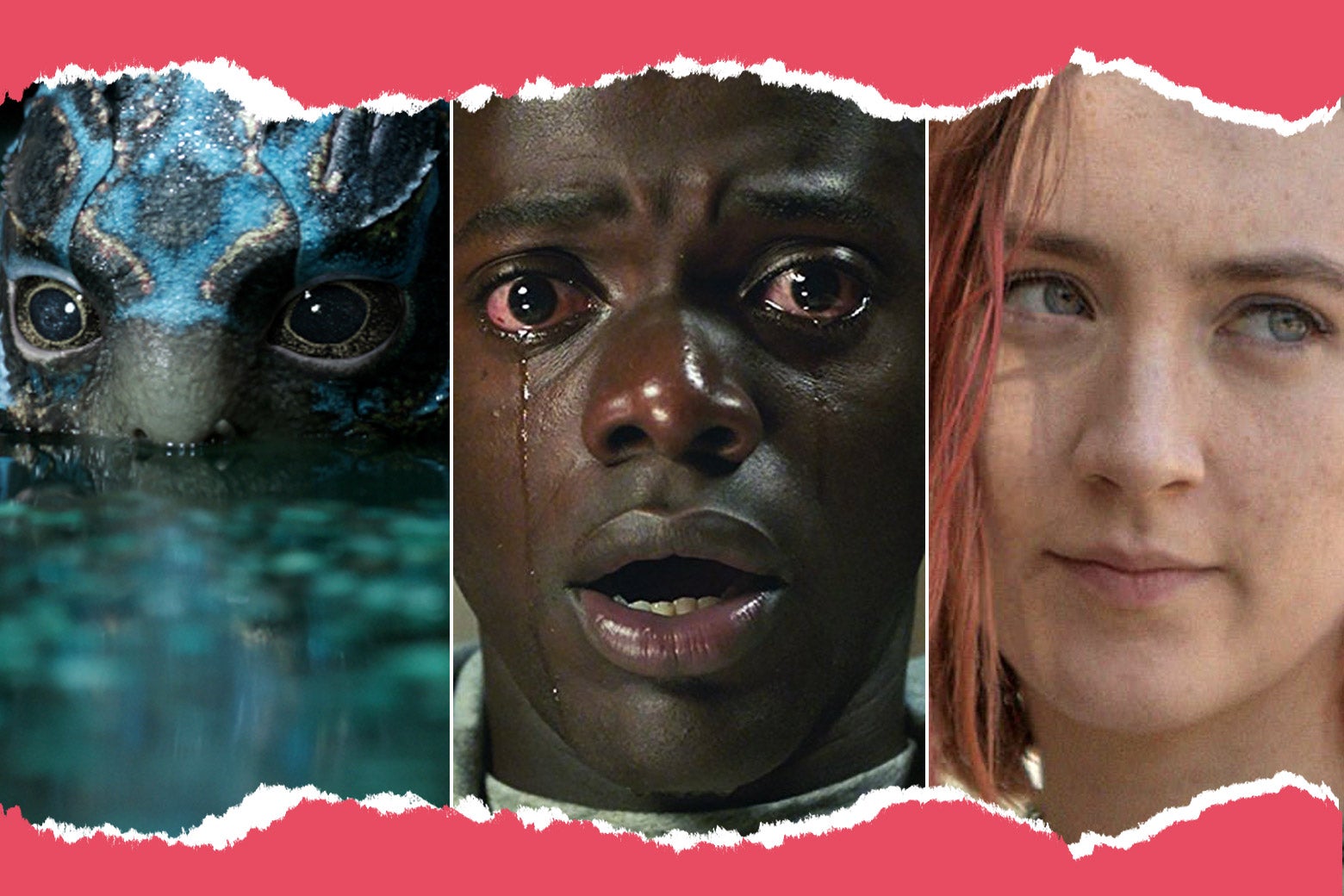Ratings for Sunday night’s broadcast are the lowest in history (or at least since Nielsen started reporting them in 1974), and as usual, it’s Hollywood’s fault. No less an authority than the former host of The Apprentice attributed the dip to the fact that “we don’t have Stars anymore—except your president,” and the hosts of Morning Joe pined for the days when the Oscar nominees would be “all movies that Americans actually saw.”
You hear the same refrain every year, and the academy has taken it somewhat to heart, first by expanding the Best Picture field from five films to a possible 10 after The Dark Knight was left off the list in 2009, then by aggressively diversifying the voting body so it looks more like America and less like an old, white man. But it’s a strange complaint to raise with a Best Picture field that includes Dunkirk, which made $188 million in the U.S. alone and more than half a billion worldwide, and Get Out, whose domestic take was more than $176 million, and on a night on which Coco (U.S. take: $208 million), Logan ($226 million), and, um, The Boss Baby ($175 million) were also up for major awards. Granted, the top 10 movies at the U.S. box office for 2017 earned a total of seven nominations between them, all of them in below-the-line categories such as score, production design, costume design, sound editing, and sound mixing, and they were left empty-handed at the end of the ceremony. But those movies have already been rewarded, in the currency Hollywood understands best: money. (Even the metaphors for money are about money.)
It’s true that the Oscars used to go to more popular movies, but what’s changed isn’t the kinds of movies the Academy nominates so much as the movies people are going to see. Take The Godfather and The Sting, which Joe Scarborough cites as examples of the good ol’ populist days. The Godfather took in $133 million in 1972, more than $788 million in 2018 dollars, and The Sting did even better the following year, earning the present-day equivalent of $870 million, which would have crushed The Last Jedi’s best-of-2017 $619 million. Granted, that’s like measuring a contemporary TV show against the MASH finale ratings or a newly released record to Thriller’s album sales—those days of monocultural domination are gone, and we will not see their like again. But even movies like 1984’s Amadeus, about the life of Mozart, and 1980’s Ordinary People, about psychotherapy and Judd Hirsch’s cardigans, were top 20 box office hits of a kind almost unthinkable today. Work your way down the list of 2017’s box-office champs and you’ll get to 24th place’s Wonder before you find anything like their equivalent. Even The Post, a classically rousing Hollywood tale starring Tom Hanks and Meryl Streep, barely made it into the top 40.
There’s some indication that the Oscars’ ratings rise and fall with the popularity of the nominees, but the fact that the broadcast’s ratings are down this year is, as Josef Adalian points out at Vulture, a reflection of the fact that “ratings for almost everything on TV are down these days.” Right-wing culture warriors and the Hollywood old guard like to argue that it’s because liberal Hollywood has lost touch with its audience, but there’s an ugly undertone to leveling that accusation in a year when the academy’s membership, at least in terms of demographics, is more like the country as a whole than ever before. In some ways, the academy’s taste has actually gotten more populist: Whatever your feelings about woman-on-fish action, The Shape of Water is a decidedly less stodgy choice than Chariots of Fire or The English Patient. It’s also at least a tentative nod in the direction of genre fiction, which tends to dominate the box office: Shape was the first science-fiction film ever to win Best Picture, and Get Out is one of only a handful of horror films ever nominated in the category (not to mention that it’s the first documentary).
As his Morning Joe co-host is running down the Oscars won by Three Billboards Outside Ebbing, Missouri—a movie released nearly four months ago—Scarborough breaks in to comment, “I’d love to see that.” It’s not that Hollywood doesn’t make ’em like they used to, so much as that when they do, audiences no longer show up.
